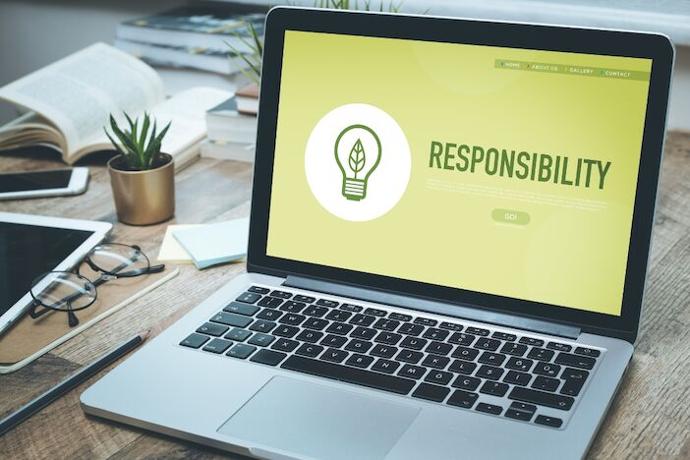Eco Contributions
What is the
Extended Producer Responsibility (EPR)
Explanation of what is the Extended Producer Responsibility (EPR).
What is the Extended Producer Responsibility (EPR)
In concrete terms, this means that producers have a responsibility to collect, treat and dispose of their products in an environmentally sound and safe manner once they are no longer in use.
Why is EPR important? Because the products we use have an impact on the environment, and producers have the power to minimise that impact. By taking responsibility for the end-of-life management of their products, producers can reduce waste, prevent pollution, and promote a more sustainable economy.
In many countries, governments have implemented EPR programs to encourage producers to adopt more sustainable practices. For example, producers may be required to pay a tax, called an eco-contribution, for the collection and treatment of their end-of-life products, which incentivises them to design more environmentally friendly and sustainable products.
In summary, EPR is an important concept that aims to hold producers accountable for the management of their products throughout their lifecycle. By taking responsibility for the end-of-life management of their products, producers can help minimize their impact on the environment and promote a more sustainable economy.
Extended Producer Responsibility (EPR) is a policy concept that requires producers to take responsibility for the environmental impact of their products throughout their entire lifecycle, including the end-of-life stage.

What is the link between EPR and eco-contributions
Eco-contributions are a form of Extended Producer Responsibility (EPR) that involves producers paying a tax on the products they put on the market. This tax is intended to fund the collection, treatment, and management of the waste generated by these end-of-life products.
Eco-contributions can be imposed on a wide range of products, such as electronic devices, batteries, tires, packaging, hazardous chemicals, and so on. The funds (eco-contributions) collected by eco-organisations, are then used to finance the collection and treatment of these end-of-life products, as well as to support recycling and sustainable waste management initiatives.
In short, EPR and eco-contributions are two related concepts that aim to hold producers responsible for the management of their end-of-life products. Eco-contributions are a concrete measure of EPR that encourages producers to take responsibility for the costs associated with managing the waste of their products and to adopt more sustainable practices.


HOW CAN WE HELP YOU TODAY
Do you have questions about how RMB can help your business? Send us an email and we’ll get
in touch with you shortly, our VAT experts are always happy to help. You can also contact us by
phone: +33 3 20 25 70 70.
Book your call with our experts
You can book a call with one of our experts to assess your fiscal situation
We offer a first check up for free, no obligations attached

CONTACTEZ-NOUS AUJOURD'HUI
Vous avez des questions sur la manière dont RMB peut aider votre entreprise ?
Envoyez-nous un courriel et nous vous contacterons rapidement.
Nos experts en TVA sont toujours heureux de vous aider. Vous pouvez également nous contacter par
téléphone : +33 3 20 25 70 70.
Réservez votre appel avec nos experts
Vous pouvez prendre rendez-vous avec l'un de nos experts pour évaluer votre situation fiscale.
Nous vous proposons un premier bilan gratuit, sans engagement de votre part.
